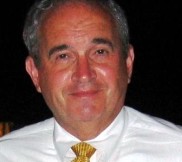AARP Hearing Center

Alan Marx pens the latest installment of AARP Tennessee’s new blog series “Outsmart the Scammers:”
Even though you probably did not receive a greeting card, May is officially recognized as Older Americans Month. You may or may not want to celebrate the occasion, but there is one group that celebrates Older Americans year round: scam artists.
The FBI warns that seniors should be especially aware of fraud schemes for the following reasons, among others:
- Older Americans are a tempting target because they are likely to have a “nest egg,” to own a home, or to have other assets.
- They are less likely to report a fraud because they do not know who to report it to, are embarrassed, in some instances do not realize they have been scammed, or are concerned that by admitting that they have been the victim of a scam their relatives will conclude they no longer have the capacity to handle their own finances.
- Some, particularly the oldest, have memory problems, which makes them poor witnesses because they are unable to supply enough details to support a successful case.
The health care field is particularly profitable for con artists. Frauds involving health care, health insurance, Medicare, Medicaid, and medical devices are common. MetLife has studied the prevalence of fraud against seniors, which it refers to as “elder financial abuse.” Although Medicare and Medicaid fraud only accounted for 4% of the fraud identified in the MetLife study, the category constituted the highest average loss per case.
Enrollment in the Health Insurance Marketplace created under the new Affordable Care Act, commonly called “Obamacare,” does not start until October 1, 2013, but scammers already are trying to take money from people who are uncertain what the law provides and how it will apply to them. The Federal Trade Commission has warned against dealing with anyone who tries to sign people up before the October 1 date.
Some older Americans have received unsolicited telephone calls from people who claim to be from the government, asking for personal information such as Social Security and Medicare ID numbers, bank and credit card information, and other personal medical and financial data. Never give your information to unsolicited callers or to strangers. The government and legitimate businesses already have the information they need. The best response to an unsolicited caller who asks for this type of information is to hang up.
Unscrupulous sellers also have targeted people with schemes involving Medicare Part D prescription drug plans and Medicare Advantage Plans. The laws regulating solicitations by the providers of these plans are very specific. For example, representatives selling Medicare Part D plans are prohibited from marketing through unsolicited contacts, including telemarketing, voice mail, emails or texts, door-to door solicitations, leaflets or flyers at your home or on your car, or approaching you in parking lots, hallways, lobbies, sidewalks, or other common areas. They may enroll you on the telephone only if you call them first, and they may come to your home only if you invite them to do so. They may not ask you for payments on the telephone or through the internet. The provider has to mail you information to set up a direct payment plan, if you want to pay that way. Finally, the provider may not charge you any fees to enroll you in a plan.
Health fraud covers both unscrupulous providers and identity thieves. Crooked providers intentionally bill Medicare or Medicaid for services that were never delivered. Taxpayers lose millions of dollars each year to this type of fraud.
Thieves try to get personal medical information, yours if they can, to create false medical identities. With these identities they obtain “free” medical treatment, surgery, or prescription drugs. These services may be “free” for the thief, but not for you. If you are the victim of a medical identity theft, the process you need to take to end the problem can be costly and infuriating. You will have to spend many hours trying to set the record straight. This type of fraud can have long lasting bad effects on your credit rating.
You should guard your Medicare and Social Security numbers as carefully as you would your wallet or your credit cards. Be suspicious of anyone other than your physician who asks you for those numbers.
Be wary of offers for free medical equipment or services, coupled with a request for their Medicare numbers. This scam has targeted people with diabetes, and sometimes the scammers have claimed to be from the government, from Medicare, or from a diabetes association. If the offer is legitimate and really is free, the provider does not need your Medicare number.
If your card is lost or stolen, report it right away. You should telephone 1-800-772-1213 (TTY 1-800-325-0778) for a replacement.
Always carefully check the Medicare bills and the Summary Notice you receive from Medicare. Were you billed for services or items that you did not receive? Also, were you billed multiple times for items you only received one time? If this occurs and it does not appear to be a simple clerical error, notify the hotline of the Office of Inspector General, Department of Health and Human Services, at 1-800-HHS-TIPS (1-800-447-8477) (TTY 1-800 337-4950).
Avoiding health fraud will give you, not the scammers, a reason to celebrate Older Americans Month.
_________________________________________________________________________________________________
Alan is an attorney with King & Ballow in Nashville, a native of Memphis and a veteran AARP volunteer whose passion is consumer protection.
Want to know more about AARP Tennessee? Visit the web site, join our Facebook family and follow along on Twitter.































































